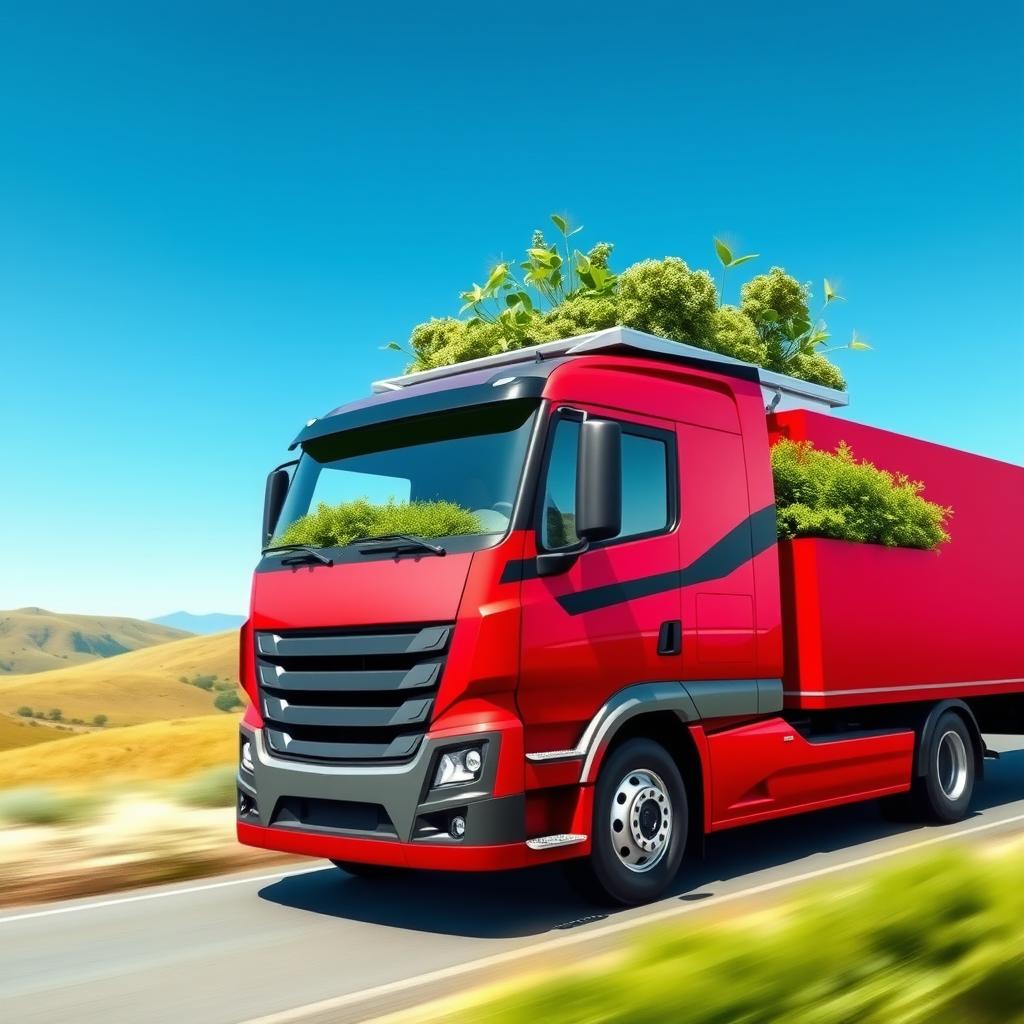Sustainable Trucking Practices Guide 2024: Leading the Way to a Greener Future
The landscape of the trucking industry is rapidly evolving, with green trucking initiatives across America taking center stage as we move into 2024. As environmental concerns grow and regulations tighten, the transportation sector is witnessing a remarkable transformation in how goods are moved across the country. This comprehensive guide explores the latest sustainable practices, technologies, and strategies that are reshaping the trucking industry for a more environmentally conscious future.
Understanding the Need for Sustainable Trucking
The transportation sector accounts for approximately 29% of greenhouse gas emissions in the United States, according to the Environmental Protection Agency. Within this sector, heavy-duty trucks are significant contributors, making it crucial for the industry to adopt more sustainable practices. The push for greener operations isn’t just about environmental responsibility; it’s about creating a more efficient, cost-effective, and future-proof industry.
Key Drivers of Sustainable Trucking:
- Environmental regulations and compliance requirements
- Rising fuel costs and operational expenses
- Consumer demand for eco-friendly shipping options
- Corporate sustainability goals and initiatives
- Technological advancements in vehicle efficiency
Alternative Fuel Technologies and Electric Trucks
One of the most significant developments in sustainable trucking is the adoption of alternative fuel technologies and electric vehicles. These innovations are revolutionizing how fleet operators approach their energy needs and environmental impact.
Electric Trucks: The Future is Here
Electric trucks are no longer just a concept but a reality gaining traction across the industry. Major manufacturers are introducing electric models with impressive capabilities:
- Extended range capabilities (300+ miles per charge)
- Reduced maintenance requirements
- Lower operational costs
- Zero direct emissions
- Quieter operation
Alternative Fuel Options
Beyond electric vehicles, several alternative fuel options are proving viable for sustainable operations:
Compressed Natural Gas (CNG)
– Reduced emissions compared to diesel
– Established infrastructure in many regions
– Competitive fuel costs
Hydrogen Fuel Cells
– Zero emissions operation
– Quick refueling times
– Longer range capabilities than current electric options
Advanced Fleet Management and Optimization
Modern fleet management systems are essential for implementing successful green trucking initiatives. These technologies help optimize routes, reduce idle time, and improve overall efficiency.
Smart Route Planning
Implementing intelligent route planning solutions can:
- Reduce total miles driven by up to 15%
- Minimize fuel consumption
- Decrease delivery times
- Optimize load capacity utilization
Telematics and Real-time Monitoring
Advanced telematics systems provide valuable data for:
- Driver behavior analysis
- Fuel consumption tracking
- Vehicle performance monitoring
- Preventive maintenance scheduling
Driver Training and Behavioral Changes
The human element plays a crucial role in achieving sustainable operations. Comprehensive driver training programs can significantly impact fuel efficiency and environmental performance.
Eco-driving Techniques
Essential practices include:
- Proper acceleration and braking techniques
- Optimal speed management
- Reduced idling time
- Regular vehicle maintenance checks
- Tire pressure monitoring
Infrastructure and Support Systems
The success of sustainable trucking initiatives depends heavily on supporting infrastructure and systems. This includes:
Charging and Refueling Networks
- Strategic placement of charging stations
- Fast-charging capabilities
- Alternative fuel station networks
- Grid capacity improvements
Maintenance Facilities
- Specialized training for technicians
- Updated diagnostic equipment
- Environmental waste management systems
Regulatory Compliance and Incentives
Understanding and leveraging available incentives while ensuring regulatory compliance is crucial for successful implementation of sustainable practices.
Federal and State Incentives
- Tax credits for alternative fuel vehicles
- Grants for infrastructure development
- Emissions reduction programs
- Research and development funding
Compliance Requirements
Stay current with:
- Emissions standards
- Fuel efficiency requirements
- Safety regulations
- Reporting obligations
According to the National Highway Traffic Safety Administration, new fuel efficiency standards are continuing to evolve, making it essential for fleet operators to stay informed and compliant.
Future Trends and Innovations
The sustainable trucking landscape continues to evolve with emerging technologies and practices:
- Autonomous vehicles development
- Platooning technology
- Advanced aerodynamic designs
- AI-powered fleet management
- Blockchain for supply chain transparency
Conclusion: Taking Action for a Sustainable Future
The transition to sustainable trucking practices is not just an environmental imperative but a business necessity. As we move through 2024 and beyond, the adoption of green technologies and practices will become increasingly crucial for competitive advantage and regulatory compliance.
Take the first step toward a more sustainable operation by contacting our team of experts. We can help you:
– Assess your current operations
– Develop a customized sustainability plan
– Implement the latest green technologies
– Train your team in best practices
– Monitor and optimize your results
Don’t wait to make your fleet more sustainable. Contact us today to learn how we can help you achieve your environmental goals while improving your bottom line. Call us at +1 513 7884050
to schedule a consultation and join the growing movement toward sustainable trucking.
Remember, the journey to sustainability is a marathon, not a sprint. Start your transformation today with a trusted partner who understands both your business needs and environmental responsibilities.







